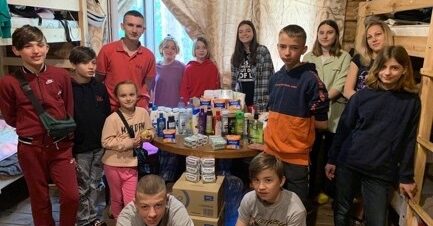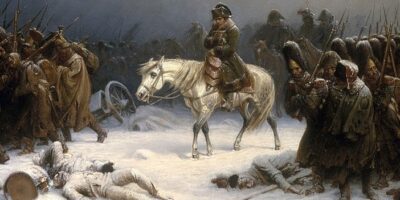The happy sounds of care-free children ring around the playground in the heart of Amsterdam where granddad duty has brought me once more.
While my two grandsons join friends playing football, digging in the sand pit or racing skelters, I catch up on the latest news updates from Ukraine sent faithfully for over eighty days now by Al Akimoff and the YWAM Slavic Ministries team.
I read that two Ukrainian children are being killed each day, and four are daily injured, mostly by explosive weapons deployed in populated areas. A whole nation’s children are having their childhoods, if not their lives and limbs, brutally destroyed by Putin’s barbaric invasion. What a contrast with these untroubled Amsterdam children running around me, about to finish their school year and start their summer break!
June should have meant the start of the summer holidays for the young Ukrainians. But almost two out of every three children have been wrenched out of home, school and playground on a scale unparalleled in Europe since World War Two. Instead of escaping into a make-believe world of pirates, princesses and Paw Patrol heroes, they have had to grow up suddenly, facing the realities of a cruel and violent world. UNICEF reports that three million children are displaced inside Ukraine, still sheltering from Russian bombs and missiles, while over 2.2 million children have fled to safe countries, mostly with mothers but no fathers.
Even across borders, however, their nightmares are not over. Many have fathers or male relatives fighting on the front lines or have had friends or relatives killed or injured in Russian attacks. I thought of the mother who told me how her daughter has had nightmares about Putin for years. And of the two other young women who told me about their anxieties for their fathers ‘somewhere on the eastern front’. How will this generation ever be healed from the emotional scars of this onslaught? How do you tell your children about the love of God in the face of hatred and violence?
Al asks in his report: Will Ukrainian children hate Russia forever? Will they learn to be cruel? Will they recover from the atrocities they experienced in their lives? If they left Ukraine as refugees, will they ever return home, and which country will they call their home? Will they understand what values their nation was fighting for, or will they take it for granted or disregard it completely? Will they always be afraid of thunder and the sound of an airplane?
An airliner flies low over the city preparing to land at Schiphol. None of the children takes any notice.
Disrupted education
A deliberate policy of disrupting education appears to be behind Russian shelling and bombing which has damaged and destroyed at least 1,888 schools since the conflict escalated on 24 February – more than twice the number of such attacks recorded in eastern Ukraine from 2014 to 2021.
Wednesday, June 1st, was International Children’s Day. In his evening video talk, President Zelensky noted that in the first 100 days of war, 243 children had been killed, 446 wounded and 139 declared missing. With pain he reported that 200,000 children had been forcibly taken to Russia: “The purpose of this criminal policy is not just to steal people but to make those who are deported forget about Ukraine and unable to return. Ukraine cannot be conquered. Our people will not surrender. Our children will not become the property of the occupiers.”
To mark International Children’s Day, the city of Lviv in western Ukraine lined up empty schools buses in Rynok Square, the city’s central market square, with 243 stuffed toys strapped to seats with name tags. The mayor of Lviv explained the memorial, entitled Excursion that will never happen, as representing the 243 Ukrainian children who will never go on a school trip.
Chaos and confusion
Devastated livelihoods and economic opportunities caused by the war also leave many families unable to meet basic needs and to provide adequate support for their children. Officials warn of an acute child protection crisis. Chaos and confusion while fleeing from danger areas expose children to further risk of family separation, violence, abuse, sexual exploitation and trafficking.
While UNICEF continues to call for an immediate ceasefire in Ukraine for the sake of all children, the dilemma President Zelensky faces is that that would freeze an unjust occupation of Ukrainian sovereign territory and only postpone Putin’s efforts to ‘make Ukraine history’.
The neighbourhood of my grandsons’ school and playground used to be Jewish. Sometimes walking from school, we stop to look at the Stolpersteine (brass memorial plaques embedded in the street) outside houses where Nazis had dragged out victims – young and old – to put them on the trains to Auschwitz and other death camps.
Will it ever end?
Till next week,



